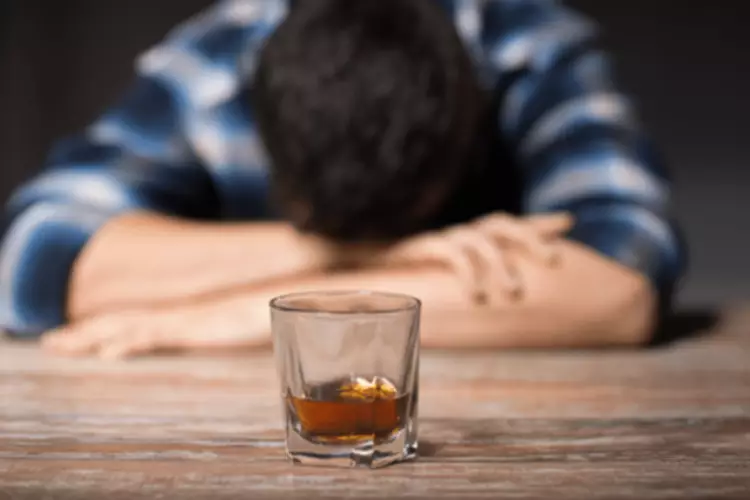Recovery from Addiction

Medications can be utilized to treat symptoms of withdrawal, help people remain in treatment, and prevent relapse. The type of medication a doctor prescribes depends on the type of addiction that is being treated. For example, there are different medications available to treat opioid, nicotine, and alcohol https://ecosoberhouse.com/ addiction. If you have an underlying mental health problem, such as anxiety or depression, it could worsen during the withdrawal phase. Healthcare providers can be very supportive and helpful while navigating these challenges. Take time to contact friends and family who will support you in your goals.

Find support for your addiction recovery
Someone with alcoholism has both a physical and psychological dependence on alcohol. They may have problems controlling their drinking habits or choose to keep drinking even though it causes problems. These problems may interfere with their professional and social relationships or even their own health.
Community Reinforcement and Family Training (CRAFT)
A doctor may prescribe drugs to help certain conditions. For example, antidepressants, if someone with an alcohol addiction were self-medicating to treat their depression. Or a doctor could prescribe drugs to assist with other emotions struggling with alcohol addiction common in recovery. Many people addicted to alcohol also turn to 12-step programs like Alcoholics Anonymous (AA). There are also other support groups that don’t follow the 12-step model, such as SMART Recovery and Sober Recovery.
What does drinking alcohol do to your body?

These groups are aimed at promoting sobriety and may take a variety of approaches. Some promote total abstinence, while others focus on moderation. Many of these offer in-person meetings, but online support groups are also available.
Dangers of Relapse
- While 12-step programs like Alcoholics Anonymous (AA) can benefit your loved one, Al-Anon meetings are great resources for you.
- We strive to create content that is clear, concise, and easy to understand.
- Either way, it’s a good idea to let them know of your goal and what they can do to support it (even if that means taking a break from the friendship for a time).
- And you don’t have to wait until you hit rock bottom; you can make a change at any time.
- Like AA, Al-Anon is a mutual-help group for the loved ones of those who struggle with alcohol misuse.
- Before you speak with them, try putting yourself in their shoes.
- By avoiding alcohol, you’re taking a big step toward improving physical health.
For people living with addictions, some of their relationships may revolve around addictive behaviors. During the pre-contemplation and contemplation stages of change, a harm reduction approach may be helpful. Harm reduction recognizes that while total abstinence is the goal, it is a process that takes time.
What to Do if Your Loved One Doesn’t Want Help
Similarly, heavy alcohol use is often an unhealthy means of managing stress. You can help your loved one find healthier ways to reduce their stress level by encouraging them to exercise, confide in others, meditate, or adopt other relaxation practices. The best treatment option for your loved one depends largely on the depth of their drinking problem, the stability of their living situation, and any other health issues they may be facing. Do your best to understand that they’re dealing with an illness.
Products & Services
- AUD is treatable and generally requires professional help.
- Others do well on their own making use of available community resources.
- You might run into obstacles along the way that tempt you to drink.
- Experts advise speaking with a healthcare professional to determine the best course of action.
Recovering from alcohol addiction is much easier when you have people you can lean on for encouragement, comfort, and guidance. Without support, it’s easy to fall back into old patterns when the road gets tough. These are the two main components of professionally led treatment. Alcoholism, also known as Alcohol Use Disorder (AUD), is a chronic disease where you have a difficult time controlling or stopping drinking despite its negative impact. It covers conditions such as alcohol abuse, dependence, and addiction.
Trends in Alcohol Abuse and Alcoholism

By posing the above question to them, you are acknowledging that they are capable of reclaiming their life, but you will still be there for them in their time of need. By asking your loved one for their feedback, you avoid passing judgment and instead show them that you respect their choices. With many people affected by alcohol abuse and alcoholism, it is imperative to develop and promote effective recovery treatment programs.
- The exception to allowing for consequences is if your loved one is doing something that could be harmful to themselves or others—for example, drinking and driving.
- Teens today experiment with alcohol earlier and more often than ever before.
- Some promote total abstinence, while others focus on moderation.
- It’s often easier to turn down a drink when you don’t have to do it alone.

Deja una respuesta